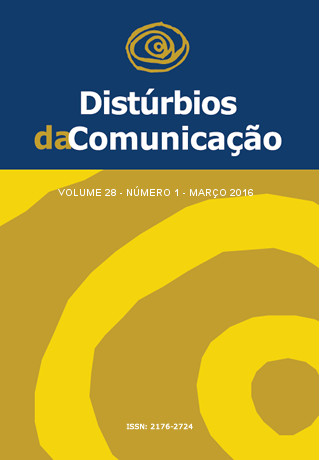Theoretical considerations about the physical, psychological and social impact on peripheral facial paralysis
Keywords:
Facial Paralysis, Bell Palsy, Psychosocial Impact, Speech, Language and Hearing SciencesAbstract
This study emphasizes the importance of considering in clinical care, especially speech, physical, psychological and social aspects of recovery and rehabilitation of cases of facial paralysis. Therefore, we presented theoretical predictions about the history of the face, pathophysiology of peripheral facial palsy, therapeutic listening in psychoanalysis and the theory of stigma. One can show that changes in symmetry, tone and expression on the face carry significant psychological and social impairments. Finally, it is considered that the face as the primary representative of the verbal and non-verbal functions has a key role during social interactions and, therefore, limitations of facial movements can greatly compromise the process of communication and socialization, which is an important object of speech therapy work.Downloads
Download data is not yet available.
Metrics
Metrics Loading ...
Downloads
Published
2016-03-31
How to Cite
Silva, M. F. F., & Cunha, M. C. (2016). Theoretical considerations about the physical, psychological and social impact on peripheral facial paralysis. Distúrbios Da Comunicação, 28(1). Retrieved from https://revistas.pucsp.br/index.php/dic/article/view/24203
Issue
Section
Communication
License
Copyright (c) 2016 Mabile Francine F. Silva, Maria Claudia Cunha

This work is licensed under a Creative Commons Attribution 4.0 International License.






